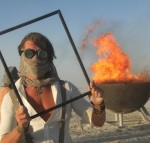I think that a lot of people in the West would be all too glad to sound the death knell for monarchy; in Canada it is something that is tolerated as a quaint tradition that costs the taxpayers an occasional expense, of which they are reminded largely only when the Governor General does something questionable, or some Royal comes for a visit, either of which infallibly produces a choir of cries from pundits and editors who are indignant at having suddenly discovered that we are indeed a constitutional monarchy, and the Queen is indeed supposed to be the Head of State.
The Romantic Supporter
In my own way, I have long been a supporter of monarchy, but largely for romantic reasons of admiration for an institution steeped in history and tradition – as well as a backlash against communism, which ravaged my homeland. But lately I have come to realize that perhaps monarchy deserves more than the lip service of ritual. In this piece, I will attempt to explain why monarchy – constitutional monarchy to be exact – is actually one of the best systems of government at our disposal.
Nota bene. The Churchillean aphorism about democracy being the worst form of government except for all the others holds true here. By constitutional monarchy I mean a monarchy – largely formal and figurative – coexisting with a democratically elected and fully accountable Parliament.
Myself, I have a rather grand distaste for democratic process. But I also realize that it is the best that we can do at the moment – if not ever. So while there may be theoretical forms of government more preferable, I will try to leave such political pipe dreams to poets, hipsters, and polisci students.

Psychology of Monarchs
But to get to monarchy we must begin with group psychology. I propose as a starting point that every human society needs to have a set of symbolic figures, upon which it can project its hopes, fears and desires. Most of us live limited lives and cannot fully explore the archetypes that are fundamental to human existence. But the presence of those archetypes in the collective unconscious drives us to seek to explore them vicariously through external narratives.
And this does not have to take place only on some deeper quasi-mythic level: to quote Hazlitt, those who cannot be all that they wish to be, look for a mirror to contemplate “their own pride, vanity, and passions, displayed in the most extravagant dimensions … to see the reflex image of their own self love”, a “peg … to lay its idle fancies on, a puppet to dress up.” And so societies go on creating the narratives and the images that serve as their vehicles.
Ancients had gods and heroes to allow the mortals to partake in the heroic deeds and in draughts of immortality. Later centuries brought saints, kings, and folk heroes. The media revolution from Gutenberg to Perez Hilton has brought in new breeds: politicians and celebrities. In the next article, I shall address the problem with replacing Baal and Barbarossa with Brangelina and Barack.


